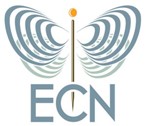 ESA's SysEB Section and the Entomological Collections Network (ECN) are pleased to announce details on the the 6th offering of the Entomological Collections Management Workshop. This hybrid model will be held both in-person at the Peabody Museum on the campus of Yale University in New Haven, CT, USA and virtually from July 28-31, 2024. The workshop will be led by co-instructors Dr. Floyd W. Shockley (Smithsonian Institution's National Museum of Natural History) and Dr. David G. Furth (Furth Museum Consulting), with guest lectures from local host Dr. Lawrence Gall, other Peabody staff, and from numerous remote collaborators.
ESA's SysEB Section and the Entomological Collections Network (ECN) are pleased to announce details on the the 6th offering of the Entomological Collections Management Workshop. This hybrid model will be held both in-person at the Peabody Museum on the campus of Yale University in New Haven, CT, USA and virtually from July 28-31, 2024. The workshop will be led by co-instructors Dr. Floyd W. Shockley (Smithsonian Institution's National Museum of Natural History) and Dr. David G. Furth (Furth Museum Consulting), with guest lectures from local host Dr. Lawrence Gall, other Peabody staff, and from numerous remote collaborators.
The period to submit applications for the workshop has eclipsed. Applications for the workshop in 2025 will be made available to submit on March 1st, 2025.
Workshop details:
Registration fee: in-person USD $125 / virtual USD $75
Maximum Participants: in-person 25 / virtual 25
Application Period: March 1 - March 31, 2024. In-person and online applicants who are selected will receive a follow up email with a link to pay the registration fee.
Workshop Sponsors: Entomological Collections Network (ECN) and Systematics, Evolution, and Biodiversity Section (SysEB) of the Entomological Society of America (ESA).
Apply to Attend:
Historically, registration was first come first served, however due to high demand, applications are now evaluated for both in-person and virtual attendance, based on a short (1-page maximum) summary on why you need to attend this workshop. This essay is a requirement for all applicants, whether you are requesting funding or not and regardless if you are attending in-person or virtually. Failure to upload an essay will disqualify you for selection to attend. Evaluation of essays will be based on a rubric that focuses on the following criteria [45 points total]:
- How does this workshop fill a critical need for you? [10 points]
- How will you apply the knowledge gained in this workshop? [10 points]
- How will this advance the management of the collection that you care for? [10 points]
- How will your participation in this workshop advance your career [10 points]
- Overall reviewer assessment of the essay. [5 points]
Scholarships:
Registration is open to everyone, however NSF funded scholarships for in-person participation are restricted to those residing in the US. To reduce travel costs international applicants are encouraged to apply for virtual attendance. At the moment, this is the final offering in this series, but we are contemplating adding a bonus year in summer 2025 with location TBD.
We are pleased to once again offer up to twenty USD $1,000 travel scholarships to in-person participants. If interested in applying for a travel scholarship, complete the justification statement during registration. If you have partial to full institutional support, we encourage using it to cover your registration and travel so we can fill the need of as many participants as possible. Like last year, we are capping the attendance at 25 in-person participants and 25 virtual participants to maximize interaction between participants and with instructors.
Apply Early - Limited Application Spots:
Because of high demand and to make it a little easier on the Steering Committee to review all applications thoroughly, this year we are limiting the number of applications to 50 for in-person and 50 for virtual to fill 25 slots respectively. So, you are encouraged to apply as soon as possible because the registration website will close when we reach 50 of each.
- Registration comments and issues can be sent to accounts@entsoc.org.
- Questions and comments about the workshop can be directed to the workshop team at workshop@ecnweb.org.
Individuals who complete the training program will receive a Certificate of Completion acknowledging their expertise in Entomological Collections Management and Best Practices, an electronic copy of all lectures, and PDF's of relevant literature. ECN will also be creating and maintaining a registry of individuals who have completed the course as a permanent form of documentation. We will be asking participants to complete evaluation forms on the course and its contents on the final day so that we can further refine it for future offerings.
General Topics to be covered:
- Collection digitization techniques, management and workflows
- Collections management policies, procedures, plans, mission statements
- Collection Profiling/Assessment
- Kinds of collections (para-collections, teaching/exhibits, etc.)
- Collection profiling (assessment)
- Collections space surveys
- Specimen packing & shipping
- Storage: compactors, cabinets, drawers, trays (pinned, ethanol, slides)
- Collection curation: arrangement, standardization, loans
- Collection conservation (e.g., environmental monitoring, T & RH, materials interactions, etc.)
- IPM (fumigants, freezing, etc.)
- Permitting (endangered/threatened species, IUCN, etc. lists)
- Moving collections
- Orphaned collection & deactivation
- Collections management literature
- Useful websites & vendors
- Archives & libraries
- Value of collections
- Deeds of gift
- Outreach (tours, public education, etc.)
- Personnel: volunteers, work study, interns, research associates/collaborators, contractors, supervision, etc.
- Security issues (access, theft)
- Building issues & planning (physical plant, architects, floor loading, etc.)
